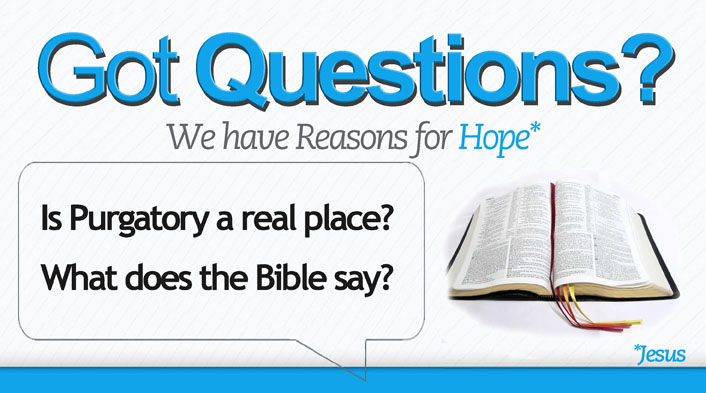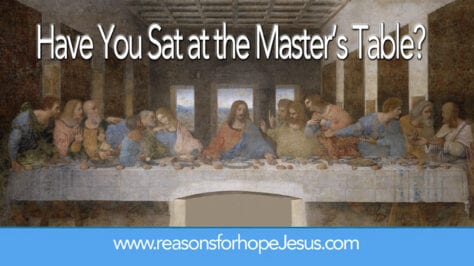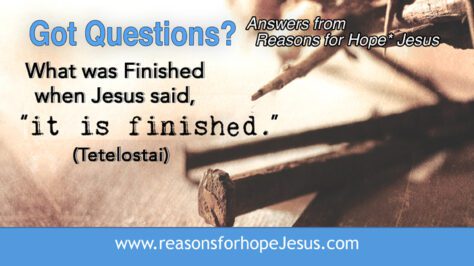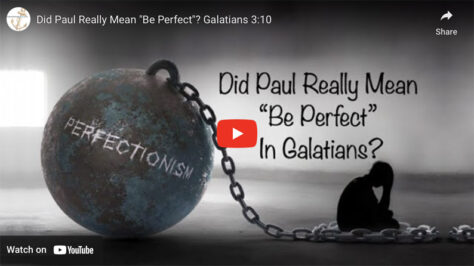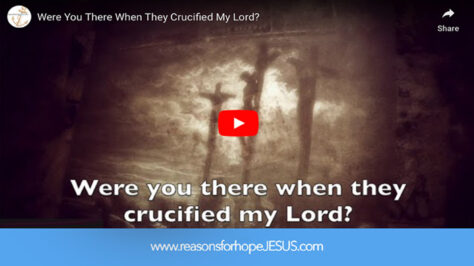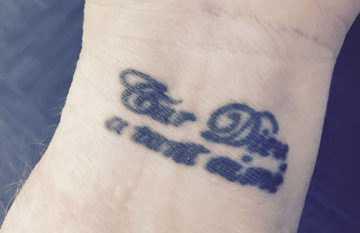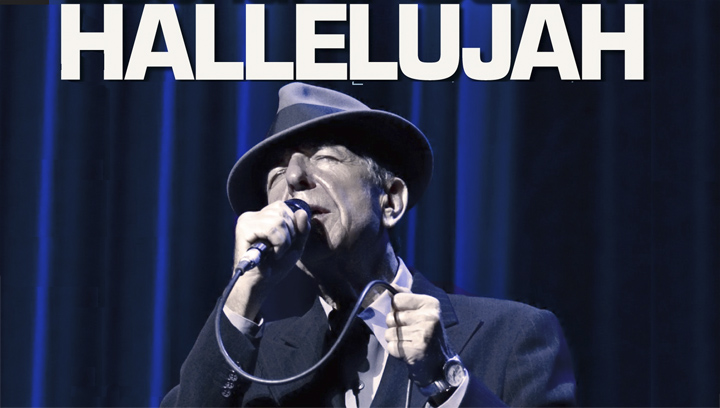Purgatory is a doctrine (teaching) of the Catholic church. The Catechism of the Catholic Church defines purgatory as:
“purification, so as to achieve the holiness necessary to enter the joy of heaven,” which is experienced by those “who die in God’s grace and friendship, but still imperfectly purified” (Catechism of the Catholic Church [i.e. CCC] 1030). “…this final purification of the elect . . . is entirely different from the punishment of the damned” (CCC 1031).
They base their belief of a necessary purification on the teaching that nothing unclean shall enter Heaven (Rev. 21:27) and that while Catholics may die with forgiven mortal sins (a knowing and willful violation of God’s law in a serious matter) there can still remain impurities in them, specifically venial sins (a relatively slight sin that does not entail damnation of the soul).
Biblical Support?
NONE! There is no biblical support for a place such as purgatory or a process of purification taking place after death. Therefore, we can declare that this “place” and “process” do not exist. There cannot be a teaching about additional purification if it is not found in the Bible. Furthermore, the Bible clearly teaches that Jesus’ work on the cross and His grace in forgiving repentant sinners is sufficient to forgive all sins. It is His forgiveness of sins, His saving of the soul (regeneration), His giving us His righteousness (2 Cor 5:21), and HIs sealing us with the Holy Spirit that makes us worthy to enter Heaven.
Refuting Purgatory
Since the Bible does not teach purgatory, we can only address it by using the Catholic teachings and then finding Scripture that refutes the existence of such a place and a need for additional purification.
Catholic Answers (catholic.com) says “the Catechism of the Catholic Church teaches…”
“All who die in God’s grace, but still imperfectly purified, are indeed assured of their eternal salvation; but after death they undergo purification, so as to achieve the holiness necessary to enter the joy of heaven (CCC 1030).”
In this statement, the Catholic Catechism makes God’s work of grace, incomplete, insufficient, and conditional upon man’s work of needing to “achieve the holiness necessary to enter the joy of heaven.”
The Bible clearly refutes this teaching by telling that our sins are washed away by the blood of Jesus (Revelation 1:5), redeemed by His blood (Revelation 5:9), and made whole and complete in Jesus (Colossians 2:10). Jesus didn’t do a partial work on the cross and He didn’t imperfectly purify us, as the CCC Doctrine of purgatory claims.
When Jesus said on the cross, “it is finished,” He had fully, and completely, atoned for the sins of man. When we repent and trust in His Person and His work, He is faithful to wash away all our sins and redeem us, completely, reconciling us to God, and assuring us of Heaven at death. There is no chance of any redeemed person going to purgatory. If there were, God would have lied and we know He cannot lie (Titus 1:2).
Revelation 5:9 And they sang a new song, saying, Thou art worthy to take the book, and to open the seals thereof: for thou wast slain, and hast redeemed us to God by thy blood out of every kindred, and tongue, and people, and nation.
Eternal Life Guaranteed
That’s clearly what the Bible teaches. Our eternal life in Jesus began the moment He forgave our sins and washed us clean. At that time, Jesus also gave us His righteousness (2 Cor 5:21) and the gift of the Holy Spirit to indwell, teach, and guide us. Jesus also promised that He will never leave us (Hebrews 13:5). While we live here on earth we have Jesus with us, by His Spirit. And, when we die, we go immediately to be with Jesus, for to be absent from the body is to be present with the Lord (2 Corinthians 5:8).
There is no “in-between” place. Those who belong to Jesus are either living on earth, united to Christ through His Spirit, or in Heaven, in His presence. Catholic Answers attempts to provide biblical support for purgatory, but it is done by using verses out of context or misinterpreting them.
Catholic Answers (catholic.com) supports the need to go to purgatory to “undergo purification” by quoting a verse in Revelation 21:
“Scripture is very clear when it says, ‘But nothing unclean shall enter [Heaven]’ (Rev. 21:27).”
A forgiven sinner is not unclean. The blood washes him clean and he is positionally secure (guaranteed of Heaven).
The Eternal State Defined
Revelation 21:27 has nothing to do with the physical death of any child of God, nor is it speaking of Heaven, the place where God dwells. This verse is extracted from a passage that speaks of the eternal state of all creation. It has nothing to do with the time in which we live, between the cross and Jesus second coming. Revelation 21 prophecies of the time after Jesus has returned and after He has made all things new. Revelation 21 is about the “new heaven” and “new earth.” Reading the beginning verses in the chapter makes it very clear that verse 27 is not about Heaven during this time.
Revelation 21:1-2 Now I saw a new heaven and a new earth, for the first heaven and the first earth had passed away. Also there was no more sea. Then I, John, saw the holy city, New Jerusalem, coming down out of heaven from God, prepared as a bride adorned for her husband.
Revelation 21:27 But there shall by no means enter it [the New Jerusalem] anything that defiles, or causes an abomination or a lie, but only those who are written in the Lamb’s Book of Life. [the “it” is the New Jerusalem, not “Heaven” as Catholic Answers inserted when quoting this verse]
At the time prophesied in Revelation 21, all non-believers will have already been judged and sent to their eternal destiny. Verse 27 is simply proclaiming the purity of the New Jerusalem, the eternal city. The verse says that only those who belong to the Lord (“in the Lamb’s Book of Life”) will dwell there. This verse is not about Heaven during the Church Age.
God Doesn’t Need Purgatory
Catholic Answers (catholic.com) uses another verse in support of the teaching of purgatory for purification. Sadly, once again, this is a verse incorrectly interpreted.
“Hab. 1:13 says, ‘You [God]… are of purer eyes than to behold evil and cannot look on wrong…’”
Taken out of context this verse seems to say that God cannot “look on wrong” (i.e. sin — “evil” in KJV). Reading the entire verse, we can clearly understand that this verse is saying God will not look on sin or wickedness and condone it.
Habakkuk 1:13 You [God] are of purer eyes than to behold evil, And cannot look on wickedness. Why do You [God] look on those who deal treacherously, And hold Your tongue when the wicked devours A person more righteous than he?
The second part of Habakkuk 1:13 clearly shows that God can and does look on sin, evil, or “wrong” as CCC records the verse. The entire book of Habakkuk is about a faithful prophet who sees great sin in God’s people Israel and wonders why God is not judging the sin. He was not saying why can’t you see their sin or look on their sin. He was asking why God wasn’t judging what He sees. We know that God is longsuffering with sinners, calling them and waiting for them to repent. That’s what was happening in Judah, and the prophet pleaded for God to judge and correct His people. God responded by telling Habakkuk that the time would come when He would judge the sin of the people, but in His way and in His time. This verse does not support the idea that God cannot look upon sin.
Man Doesn’t Need Purgatory
Catholic Answers (catholic.com) poses a question to the reader in defense of the teaching of purgatory.
“How many of us will be perfectly sanctified at the time of our deaths?”
The answer to this question is, all who belong to Jesus perfectly sanctified at death. They have been redeemed and justified by Jesus (Read: The Gift of SalvaTION: Justification & Imputation). We certainly know that we continue to sin in our journey in sanctification (Read: What you need to know about Sanctification & Glorification), but Jesus has already fully forgiven us and given us His righteousness, so we are IN Him. That is our positional standing that guarantees our entrance into Heaven.
Catholic Answers (catholic.com) responds to their own question with:
“I dare say most of us will be in need of further purification in order to enter the gates of heaven after we die, if, please God, we die in a state of grace.”
We don’t enter the gates of Heaven because we have received “further purification.” We enter Heaven because Jesus fully purified us when He saved us. His work in saving us was totally sufficient to purify us to enter Heaven.
To Be Absent from the Body is to Be Present with the Lord
We enter Heaven immediately at death (2 Cor 5:8) because Jesus took our sins and gave us His righteousness (2 Cor 5:21). This is the Doctrine of Imputed Righteousness (The Gift of SalvaTION: Justification & Imputation). The great reformer Martin Luther, a former Catholic monk who rejected the Catholic doctrines of salvation and then started the Protestant Reformation, called this the Great Exchange. Luther came to understand:
- the magnitude of the gift of salvation and the sufficiency of Jesus death and resurrection.
- that salvation is a work of God and it is not based on anything we can do.
- what Jesus meant when He cried out, “It is finished” (John 19:30).
Luther’s understanding of these things started the reformation movement that changed the church. It was a movement built firmly on the Word of God:
Ephesians 2:8-9 For by grace you have been saved through faith, and that not of yourselves; it is the gift of God, not of works, lest anyone should boast.
So, what about purgatory?
The answer is simple. There is no such place. It doesn’t exist. Sadly, the Catholic church teaches this to all its members.
Catholic Answers (catholic.com) says the following (all bracketed information is mine).
“In light of this [Catholic Answers’ statements about purgagory], the truth about Purgatory is almost self-evident to Catholics. [Notice they qualify their own belief with “almost.” Something “self-evident” can’t be “almost self-evident.” Either it is, or it isn’t, self-evident.]
“However, to many Protestants, this is one of the most repugnant of all Catholic teachings. It represents ‘a medieval invention nowhere to be found in the Bible.’ [Correct. Purgatory is not in the Bible. It cannot be claimed as “truth” without proper biblical support. Out-of-context, misinterpreted verses cannot be used support a doctrine.]
“It’s often called ‘a denial of the sufficiency of Christ’s sacrifice.’ [that’s exactly what I claim] It is said to represent ‘a second-chance theology that is abominable.’” [Not only does the purification of purgatory deny the sufficiency of Christ’s sacrifice on the cross, but so also do other teachings of the Catholic church, e.g. the mass. And, purgatory really is a type of “second-chance theology.” Read Hebrews 9, especially 9:27.]
Always be a Bible-believing, Bible-searching Christian. Test all things against what the Word of God says (Acts 17:11). Hold fast to the truths that God reveals.
Remember, our eternal life with Christ began the moment He saved us. Jesus is always with us now, by His Spirit, and He has already made us worthy to enter into His presence at the time of our death. There is no purgatory for a blood-bought Christian. Glory awaits us (2 Corinthians 4:17) and we will see Jesus face to face (1 Corinthians 13:12). That’s why Paul said:
To live is Christ, to die is gain.
(Philippians 1:21)
<*}}}><
*******
Jesus is the Reason this Ministry Exists
At Reasons for Hope* Jesus, we are committed to equipping, encouraging, and empowering Christians to know Jesus better, love Him more, and share their faith. We also reach the lost through our Salvation Page.
With your support, we can continue to provide valuable resources and engaging content. Please join us in our mission by donating today. Your generous contribution helps us expand our outreach of sharing biblical truths and hope in Jesus. Thank you for your kindness and for being an integral part of our mission.
*******
*******
***A Hidden Message in Psalm 23?***
Hidden in the six verses of Psalm 23 are 11 names for Jesus. When you subscribe to our newsletter, we’ll send you The Names of God in Psalm 23 PDF that reveals all 11 names and Scripture verses of comfort and hope (link will be sent in your confirmation email).
 A Room with a View of Eternity—The Last Will & Testament of Jesus Christ Take a seat at the Master's table. Learn about the riches He gives to all who are His. This book will bless and encourage you, give you hope, and help you live in the joy of your salvation and the riches of Christ that are yours.
A Room with a View of Eternity—The Last Will & Testament of Jesus Christ Take a seat at the Master's table. Learn about the riches He gives to all who are His. This book will bless and encourage you, give you hope, and help you live in the joy of your salvation and the riches of Christ that are yours.

The Top Ten Got Questions? in 2023
- The Meaning of NUMBERS in the Bible?
- Was Jesus CRUCIFIED on Wednesday, Thursday, or Friday?
- How was Jesus Like a Worm? What’s the CRIMSON (OR SCARLET) WORM in Psalm 22?
- How are the Shepherd’s ROD and STAFF Different?
- How long did JOB SUFFER?
- What is the Significance of the Wise Men's THREE GIFTS? And were they kings?
- Did The Wise Men Arrive 12 DAYS AFTER JESUS’ BIRTH? Or Was It Much Later?
- Jesus’ Last Days TIMELINE: the Cross and the Resurrection
- The Meaning of COLORS in the Bible?
- Did Jesus Fight Satan to Take Back the KEYS of Death and Hell?
There is much to be learned from those who have gone before us in the faith. Check out our Cloud of Witnesses category that features the words of departed saints who are now with the Lord in glory. Their words equip and encourage us even to this day. Take a few minutes to hear...
- ONLY ONE LIFE, Twill Soon Be Past – by C.T. Studd (1860 – 1931)
- “The Love of God is Greater Far” by Frederick M. Lehman (1917)
- Prayers from Billy Graham
- Who Was Robert Robinson? What’s the Story Behind “Come Thou Fount”
- “Immanuel” — A Poem by Charles Spurgeon (1834-1892)
- Who Am I? A Poem by Deitrich Bonhoeffer (1905-1945)
- Understanding the Everlasting Arms of God, by J.R. Miller (1840–1912)
- 24 Reasons Why I Love America, by John Wayne (1907-1979)
- Give Me Perpetual Broken-heartedness (from The Valley of Vision)
- Abide with Me, by James Smith, 1859
This remains one of our most popular pages viewed.![]()

TOP TEN Videos from Reasons for Hope* Jesus
- Memorial Day BAGPIPES TRIBUTE: Amazing Grace
- RISE AND SHINE and Give God the Glory, Glory!
- WERE YOU THERE When They Crucified My Lord?
- PAUL HARVEY: THE BIRDCAGE
- PRESIDENT RONALD REAGAN: A SOLDIER'S PLEDGE
- Hark! the Herald Angels Sing -- CHARLIE BROWN Christmas
- JOHN WAYNE ~ WHY I LOVE AMERICA
- Jimmy Stewart - Nativity Scene Prayer: Mr. Krueger's Christmas
- THE LEGEND OF THE CANDY CANE - A Christmas Story to Share
- Not by Might, Not by Power, But BY MY SPIRIT says the Lord (Zechariah 4:6)
*****************

